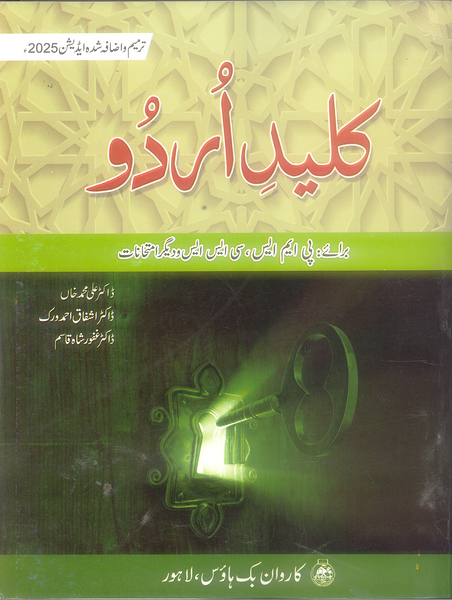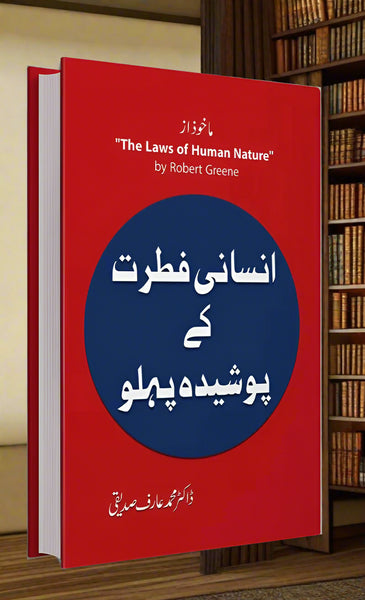Quaid E Azam Kya Thy Kiya Nahi Thy - کیا تھے کیا نہیں تھے by Dr Mubarak Ali
- Publisher: HISTORY
- Availability: In Stock
- SKU: 47460
- Number of Pages: 128
Rs.450.00
Rs.600.00
Tags: best books , Best Price , Best Selling Books , challenges faced by Jinnah , Dr. Mubarak Ali , founding of Pakistan , historical analysis of Jinnah , historical figures of Pakistan , Jinnah's leadership , Jinnah's role in partition , Jinnah’s contributions to Pakistan , Jinnah’s governance , Jinnah’s ideals , Jinnah’s impact on Pakistan , Jinnah’s political vision , Jinnah’s speeches , leadership in South Asia , Muhammad Ali Jinnah , ONLINE BOOKS , Online Bookshop , Pakistan movement , Pakistan's first Governor General , Pakistan's history , Pakistan's struggle for independence , Pakistan’s founding father , Pakistan’s independence , political decisions of Quaid E Azam , political history of Pakistan , political leadership in Pakistan , post-independence Pakistan , Quaid E Azam , Quaid E Azam biography , Quaid E Azam: Kya Thy Kiya Nahi Thy , Quaid E Azam’s legacy , Quaid E Azam’s personal life
Quaid E Azam: Kya Thy Kiya Nahi Thy (قائد اعظم: کیا تھے کیا نہیں تھے) by Dr. Mubarak Ali is an insightful and critical examination of Quaid-e-Azam Muhammad Ali Jinnah's life and legacy. In this book, Dr. Ali offers a nuanced perspective on Jinnah's personal and political journey, questioning the myths and misconceptions that have surrounded the founder of Pakistan over time. The book explores both the strengths and shortcomings of Jinnah, presenting him as a complex figure whose life and decisions continue to be subjects of debate and interpretation. Dr. Ali challenges the conventional narrative and invites readers to reflect on Jinnah’s actual contributions to the creation of Pakistan, as well as the aspects of his leadership that may have been overlooked or misrepresented. The book delves into Jinnah's political philosophy, his vision for the newly formed state, and his enduring impact on the political and social fabric of Pakistan.
Key Points:
-
Re-examination of Quaid-e-Azam’s Life: Dr. Mubarak Ali critically analyzes the life of Muhammad Ali Jinnah, offering a balanced perspective on his strengths and flaws, which challenges the often idealized portrayal of Jinnah.
-
Myth vs. Reality: The book questions many of the myths that have been created around Jinnah, presenting a more realistic and grounded understanding of his life, political career, and decisions.
-
Political Philosophy and Vision: Dr. Ali explores Jinnah’s political ideology, focusing on his commitment to democracy, his secular views, and his vision for a modern, inclusive Pakistan.
-
Leadership Qualities: The book highlights Jinnah’s leadership qualities, both admirable and flawed, and how his personal traits shaped the political and social landscape of Pakistan.
-
Jinnah’s Relationship with Religion: Dr. Ali discusses Jinnah's approach to religion in politics, examining his vision of a state that allowed religious freedom and equality, in contrast to the religious extremism that developed in later years.
-
Challenges of Nation-Building: The book also delves into the challenges Jinnah faced in nation-building, from internal political strife to dealing with the aftermath of Partition and the creation of Pakistan.
-
Historical Context and Influence: Dr. Ali provides a historical context for understanding Jinnah's actions and decisions, offering insights into the political environment of his time and how it influenced his leadership.
-
Humanizing Quaid-e-Azam: This work humanizes Jinnah, showing him not just as a national hero but also as a person with his own contradictions, making him more relatable and accessible to modern readers.
-
Critical Reflection on Jinnah’s Legacy: The book prompts readers to reflect on Jinnah’s enduring legacy and how his ideals and actions continue to shape Pakistan today, with an honest assessment of what worked and what did not.
-
Balanced Historical Account: Dr. Ali’s approach is balanced and scholarly, offering a nuanced portrayal of Jinnah’s achievements and shortcomings without succumbing to idealization or vilification.
Conclusion:
Quaid E Azam: Kya Thy Kiya Nahi Thy is a thought-provoking work that invites readers to reconsider the life and legacy of Muhammad Ali Jinnah from a more critical and realistic standpoint. Dr. Mubarak Ali’s scholarly approach provides a fresh perspective on Jinnah’s contributions to Pakistan, while also acknowledging the complexities and limitations of his leadership. This book is essential for anyone interested in understanding the multifaceted nature of Jinnah's political vision and his lasting impact on the course of Pakistan’s history.
════ ⋆★⋆ ═══
Writer ✤ Dr. Mubarak Ali

























